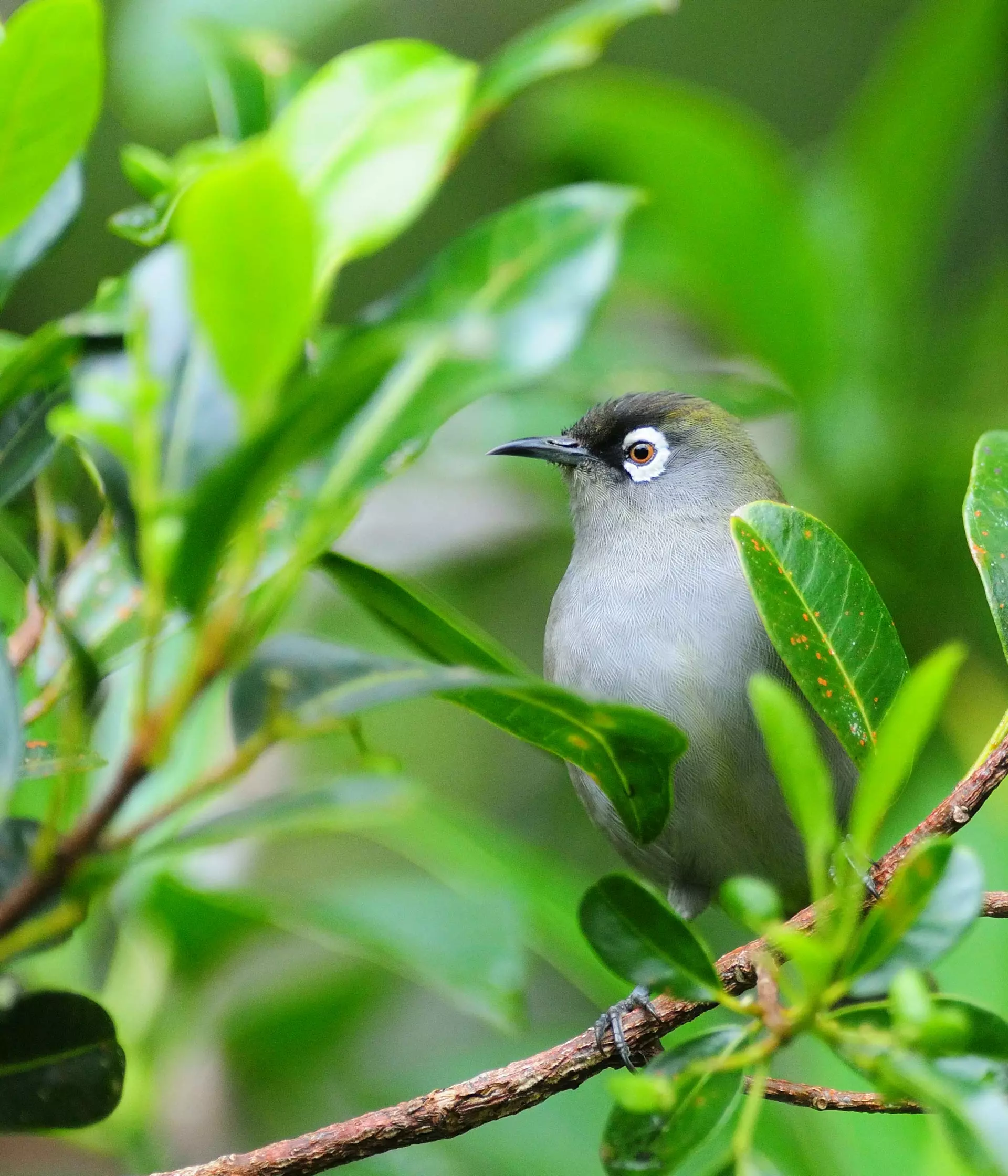Dr Malcolm Nicoll
Senior Research Fellow
Recovering olive white-eye
The olive white-eye is the rarest bird in Mauritius, with less than 150 pairs remaining in the Black River Gorges National Park. They are a living piece of evolutionary history, a part of an ancient Indian Ocean white-eye lineage with birds colonising from Asia prior to the subsequent evolution of the African species. Much like the Mauritius kestrel, they have devastated by invasive rats and extensive habitat loss.
Before our work started, little was known about their biology, range and population size. However, through scientific research we have established an understanding of their ecological requirements and population limiting factors has been established. Our knowledge is crucial to inform the reintroduction of the olive white eye to the predator-free island nature reserve, Ile aux Aigrettes. Currently, this population of around 60 individuals, is intensively monitored and managed through the provision of supplementary feed.
Olive white-eye conservation
The ZSL Institute of Zoology is actively involved in the olive white eye project and, along with our conservation partners, provides scientific evidence to drive the species recovery programme. The recovery programme is implemented by the Mauritian Wildlife Foundation and the National parks and Conservation Service (Government of Mauritius), with support from the Durrell Wildlife & Conservation Trust (DWCT) and Chester Zoo.
Our research has provided insight on how rats significantly reduce breeding success in olive white-eyes and hence contribute to the ongoing population decline. Helping us understand how to better control this invasive species to restore olive white-eye populations. We’re trialling these predator-free solutions for the first time in Mauritius. We’re also analysing the effectiveness of the provision of supplementary feed as a conservation management tool for olive white-eyes and this may be refined in the long -term through targeted habitat management.
This work not only benefits the Mauritius olive white-eye but also the other endemic passerine species of Mauritius and projects globally, facing similar threats of invasive species and long-term management uncertainty by combining science, conservation and communication.
When nature loses, we all do. Join us on our fight for the natural world, spanning every continent from the depths of the Antarctica to the Sahara desert.
Partners: Mauritian Wildlife Foundation, National Parks & Conservation Services (Government of Mauritius), Chester Zoo, Durrell Wildlife Conservation Trust
Sponsors: Chester Zoo
